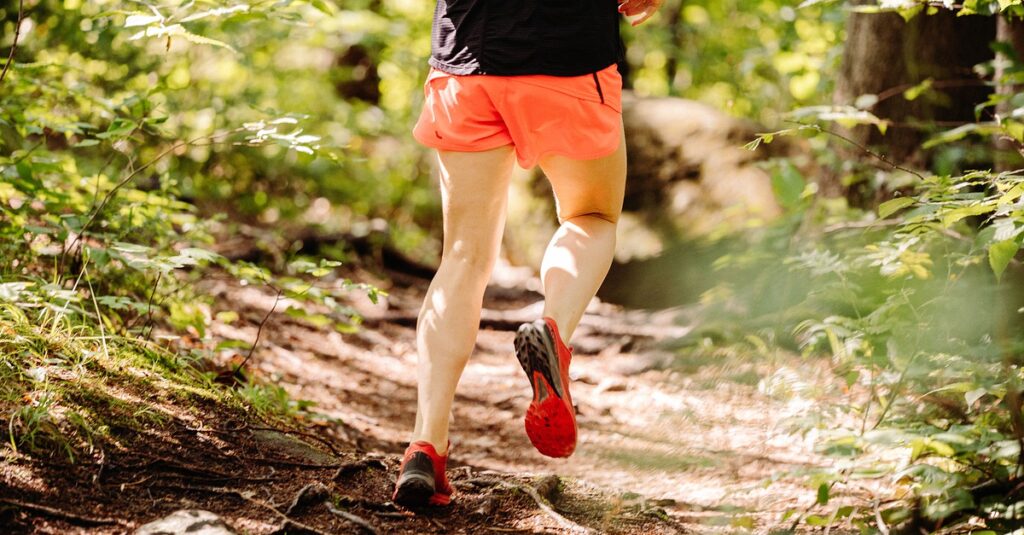

Running can be good for freediving because of its broader physical and mental health benefits, especially in building a healthy cardiovascular system. Freedivers may choose to make running or other cardio activity part of a broader training program which also includes strength and breath exercises.
Freediving involves both aerobic and anaerobic activity and can put great pressure on the heart and lungs. Running is good for freediving and many other sports because it strengthens the cardiopulmonary system and enhances overall aerobic fitness.
The True Story Book of Freediving Champion Audrey Mestre and the Story of Her Death
View on Amazon: The Last Attempt (Opens new tab)


Top rated read
Running may be beneficial for freedivers in general terms, just like cycling, walking, HIIT and other cardio exercise. At the same time, they are no substitute for regular practice of breathing techniques and breath-holding exercises which build the specific lung function, muscle memory and psychological resilience required in freediving.
Benefits of running for freediving
Running carries numerous potential physical and mental health benefits for much of the population including freedivers. (Even 5-10 minutes of running each day can extend the life of runners by several years compared to non-runners.)
Particularly positive impacts include:
- Lower blood pressure and improved cardiovascular function. This can help freedivers’ bodies to withstand the effects of high water pressures on the heart and lungs.
- Increased blood volume. This translates into increased storage of much-needed oxygen for freedivers as well as greater tolerance of carbon dioxide.
- Stronger leg muscles. Freedivers need to propel themselves through water at high pressure and under anaerobic conditions in the leg muscles.
- Reduced stress and greater focus and resilience. Relaxation, concentration and a calm, focused attitude are all essential for a strong freediving performance.
How can I exercise for freediving?
Freedivers should adopt a broad exercise program which builds cardiovascular fitness, trains key muscle groups used in freediving, and improves lung capacity and function. Flexibility, mental resilience, and relaxation capability are also important.
Cardio
There are numerous cardio activities which might suit individual freedivers including running, walking, cycling, HIIT or circuit training. Cardio and strength training can be done both in the normal way or while practicing breath-holding (NB with a buddy), in order to train your body for anaerobic respiration.
In fact, we’ve written an entire article on why cardio exercises can help with freediving (opens new tab) which you can check out.
Strength training
Strength training can enhance freediving performance by developing arm, leg and other muscles that will be particularly tested when moving through the high pressure of deep water.
Flexibility, mental resilience, relaxation
Yoga or pilates practice can be useful for some freedivers, as are some other forms of meditation and breath work.
Breathing and breath-hold training
Segmented breathing: Freedivers can use segmented breathing to increase consciousness and control of the different muscle groups used in breathing. Breathing from the lower chest and diaphragm as well as from the upper chest, increases overall lung capacity and efficiency.
Systematic breath-hold training: Holding your breath in line with timings from pre-defined carbon dioxide (CO2) and oxygen (O2) training tables can build physical tolerance for higher CO2 and lower O2 levels.
Apnea walks: Apnea walking is a training exercise which helps to develop greater tolerance to higher CO2 levels. There are several different types of apnea walk exercise but all involve movement while breath-holding, aiming to gradually increase the distance you can cover.
Lung-packing / glossopharyngeal insufflation (GI): A breathing technique called glossopharyngeal insufflation (GI), or “lung packing”, activates the glossopharyngeal muscles to pump additional air into the lungs on top of a full inhale.
References
https://pitjournal.unc.edu/article/long-distance-running-investigation-its-impact-human-health
https://www.freedivewire.com/cardio-freediving-spearfishing/
